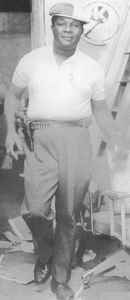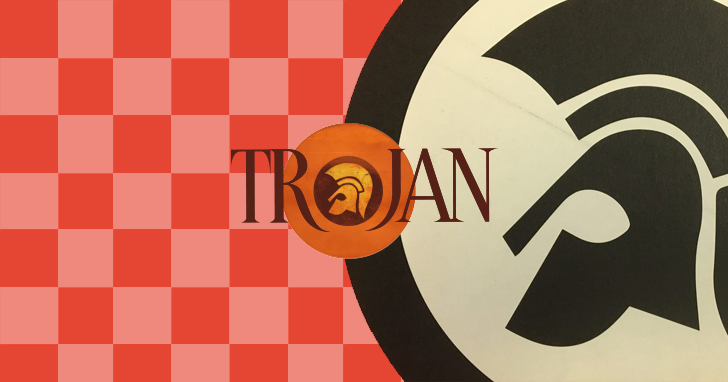To Mods, Skins, Suedeheads and Rudies there is perhaps no label more synonymous with Ska, Reggae and Lovers Rock than Trojan Records. From Desmon Deckers Israelites to Ken Boothe’s 1970s hit ‘Everything I Own’ the records on their label served such a fundamental legacy to the mainstream British Ska and Reggae scene. However, how did it begin?
Why is it called ‘Trojan’ Records ?

To understand its namesake we must trace its origin to 1950s Jamaica and that of the legendary producer/ artist Arthur ‘Duke’ Reid. In the 1950s Arthur ‘Duke’ Reid ran a sound system known as ‘Reid’s sound system.’ It is widely thought to be that from his sound system he gained his nickname ‘The Trojan’ – which was a brand of British-built lorries on which he carried his sound system. Reid’s sound system quickly rose to dominance becoming one of the most prominent sound systems in Jamaica. However, It wasn’t until the late 1950s that Reid began to produce records, starting in other Studios but eventually moving his recording studio to above his shop on Bond Street. Whilst doing this he became the proprietor of multiple labels including that of Treasure Island.
It was in June of 1967 that the Label began to come to fruition after a release of a ‘Duke’ Reid compilation was released by Island Records. As a homage to Reid’s nickname the record was imprinted ‘Trojan’. However, it failed to live up to the potential it would soon gain and Folded after a couple of months.
The Trojan Horse arrives
In 1968 a merger between Island Records and its main rival (B&c) and the creation of a new music company from which to release Jamaican music birthed the record we came to love – Trojan. The new Trojan birthed a wave of singles releasing singles from every producer that was big at the time from Lee ‘Scratch’ Perry to the Trojan himself – Authur Duke Reid.
After the introduction of Jamaican music to working-class culture as a result of the multicultural community of working-class Britain the exposing of Ska to Mods through the Blue Beat label ingrained Jamaican music into the subculture. However With the birth of Trojan, alongside it was that of the Skinheads. With this interweaving of the Skinheads and Trojan not only did the two become synonymous, but during the famous summer of 69 the company exploded within its first year and enjoyed mainstream success with the hit ‘Red, Red Wine’ by Tony Tribe. Whilst the likes of the Pioneers and Harry J all-stars (famed for their single ‘Liquidator) would soon come to surpass this single this single paired the way for the Trojan horses’ glory.
Like the City of Troy, Trojan infiltrated the British charts through the likes of the Maytals and Desmond Decker, who achieved the first Jamaican N01 in British Charts. However, it would be until 1971 when Trojan finally secured their first N0.1 with Dave and Ansil Collins ‘Double Barrel’. During the golden years of Trojan acts like Bob Marley and the Wailers and John Holt, acts unknown outside of Jamaica were suddenly thrust to the forefront of British popular music with songs like ‘help me make it through the Night.’ Other characters like that Judge Dread (his name gained from Prince Buster’s hit of the same name) whose rude and humours songs reminiscent of max romeos ‘wet dream’ brought a further sense of humour to Ska, as well as shock that landed Dread with the record for the most songs band by the BBC (all 11 of his singles).
1975
However, by 1975 the pace of the Trojan Horse began to fall with Finacial difficulties leading to the acquisition of the label by Marcel Rodd. Rodd’s lack of experience became costly, however, the birth of the 2nd wave of Ska (two-tone movement) became Trojan’s get-out-of-jail-free card. The interest in the old Ska music that so fueled the band of two tones brought the interest back upon Trojan Records and subsequently the release of compilations to fuel the interest. Whilst this saved the records skin for the moment, by 1985 old Ska had lost its interest and again was sold on. Colin Newman was an accountant and Avid collector of the label and under his direction, Trojan focused on its past with his aim of the label becoming the worlds leading vintage Reggae specialist. 15 years later it was sold again for 10 million and it went from strength to strength under Sanctuary Records where it released Ska, dancehall and more.
In 2007 Universal brought Sanctuary and with it, Trojan placed it back to where it began under that of Island Records where much of what made the label so special was restored including the re-release of numerous collections throughout its 7 years span with UMG. Finally, it was sold in 2014 to BMG where it has stayed ever since still releasing compilations to this day.
Whilst the Trojan label is no longer the powerhouse it was in the summer of 69 the legacy it has left behind has firmly cemented Jamaican music in British Culture with the music of Bob Marley, Desmond Decker and Lee ‘Scratch’ Perry still holding a strong part in not just the Skinhead, Mod and other subcultures heart – but that of the whole world.
What are your thoughts about the Trojan history and the record company? Let us know in the comments!
